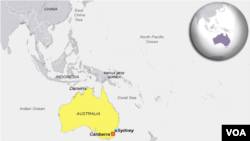Japan’s Prime Minister Shinzo Abe and his allies easily won a two-thirds majority in parliament Sunday, even though the country has slipped into recession under his conservative policies. The prime minister’s victory will empower him to continue economic reforms but also pursue a nationalist agenda that will likely increase tensions with Japan’s neighbors.
In an election marked by low turnout and concern over a stagnant economy, Prime Minister Shinzo Abe’s Liberal Democratic Party and its ally, the Komeito Party, together increased their majority in Japan’s House of Representatives.
“We had a goal as coalition to take a majority of the seats," Abe explained. "The lower house elections are about choosing the ruling party. So I am relieved that we have managed to continue our ruling coalition with the Komeito party. But at the same time this is also a great responsibility."
Abe said the victory is an electoral mandate to continue with his economic program known as "Abenomics" that raised taxes to curb the nation’s large public debt, pushing the economy into recession.
The election win will make it easier to pass unpopular reforms like deregulating labor and farm policies. It also will likely allow Abe to pursue a nationalist agenda likely to antagonize South Korea and China.
In the last year, Abe angered his northeast Asian neighbors by visiting a shrine honoring military service members, including war criminals, who died in World War II. His administration’s efforts to revise school history books, to deny that Japan’s military forced women into sexual slavery during the war, also has provoked protests abroad.
Political science professor Park Hwee-rhak, at Kookmin University says seeing Abe back away from these strong emotional issues would ease tensions. “I think northeast Asia - China, South Korea and Japan - is not ready to view history objectively," he said, "So I hope Abe will emphasize practical policies which can guarantee peace or mutual prosperity in northeast Asia, and not focus on the history.”
Japan also has competing claims with both South Korea and China to two different chains of islands in the East China Sea.
Its closest neighbors are wary of Abe’s support for changing Japan's pacifist constitution to make the military more assertive against regional threats like North Korea.
Sejong University political science professor Hosaka Yuji says Japan is more concerned about China’s growing military strength. “As China is enhancing its military capability, Japan also needs to enhance its armaments to not lose," he noted. "In order to do this, Japan needs to have its own military but that requires a change to the Constitution.”
The U.S. supports the expansion of Japan's military, so it can play a bigger role in the two nation's alliance, although U.S. officials have criticized attempts to whitewash Japan’s wartime history.
VOA News Producer in Seoul Youmi Kim contributed to this report.







